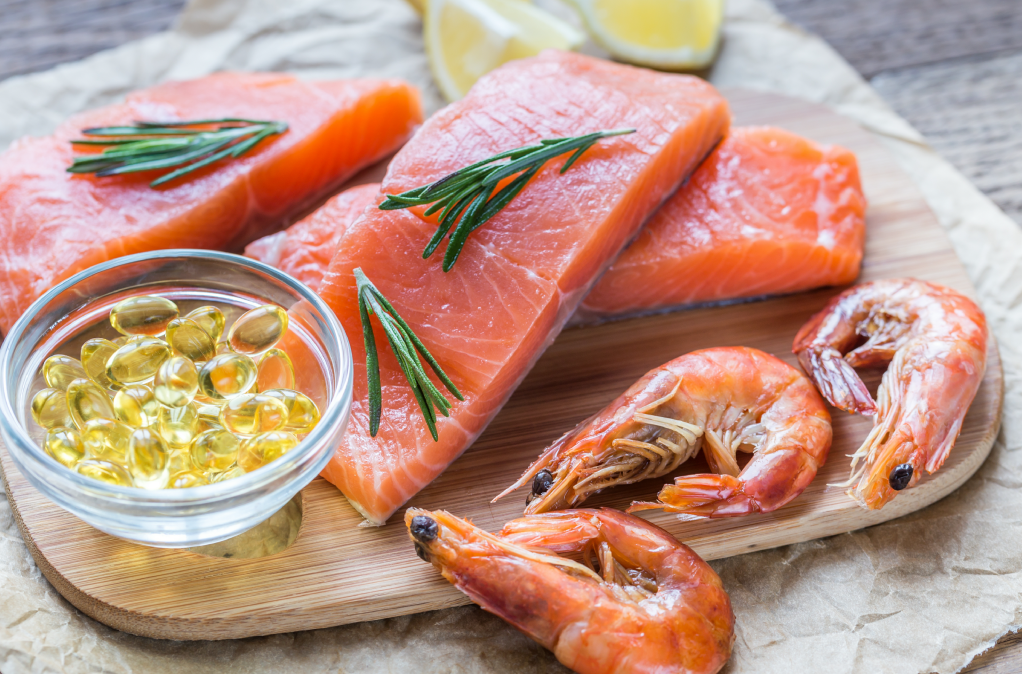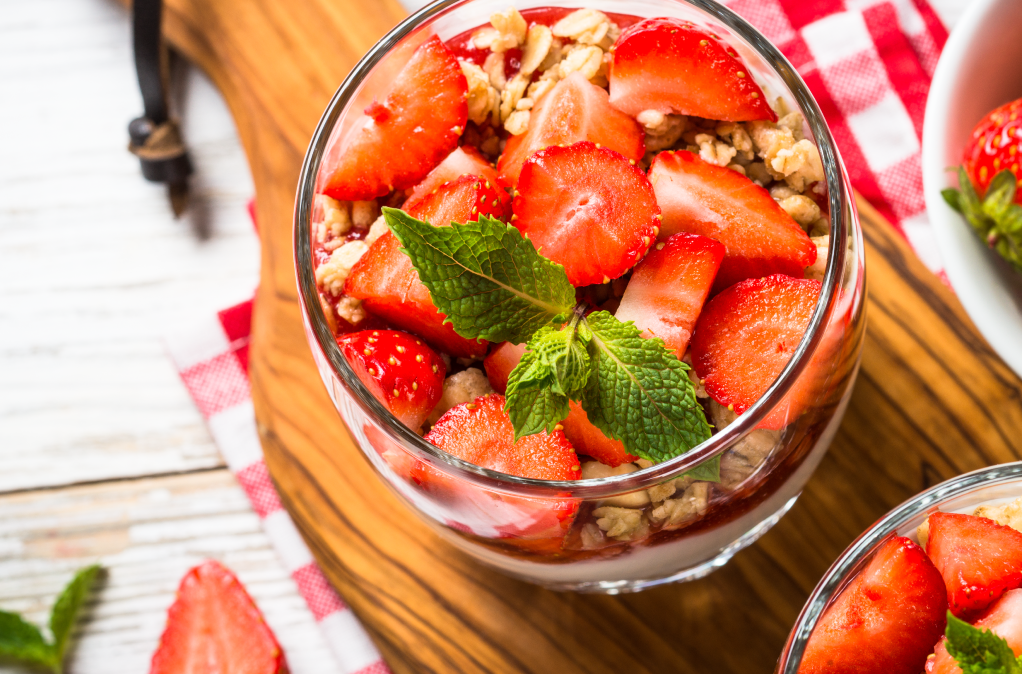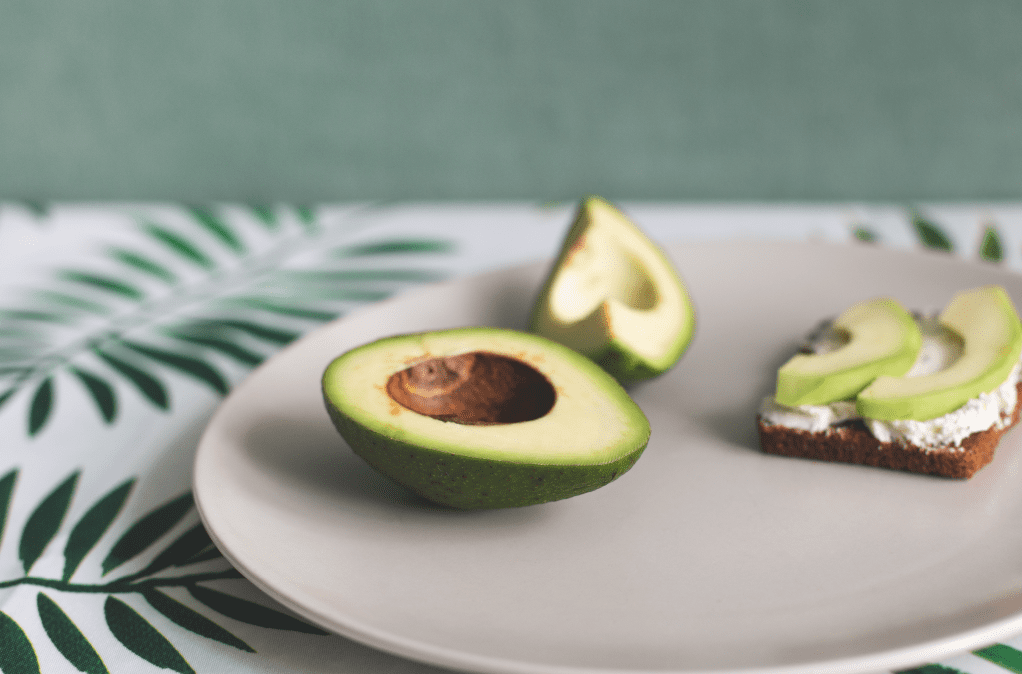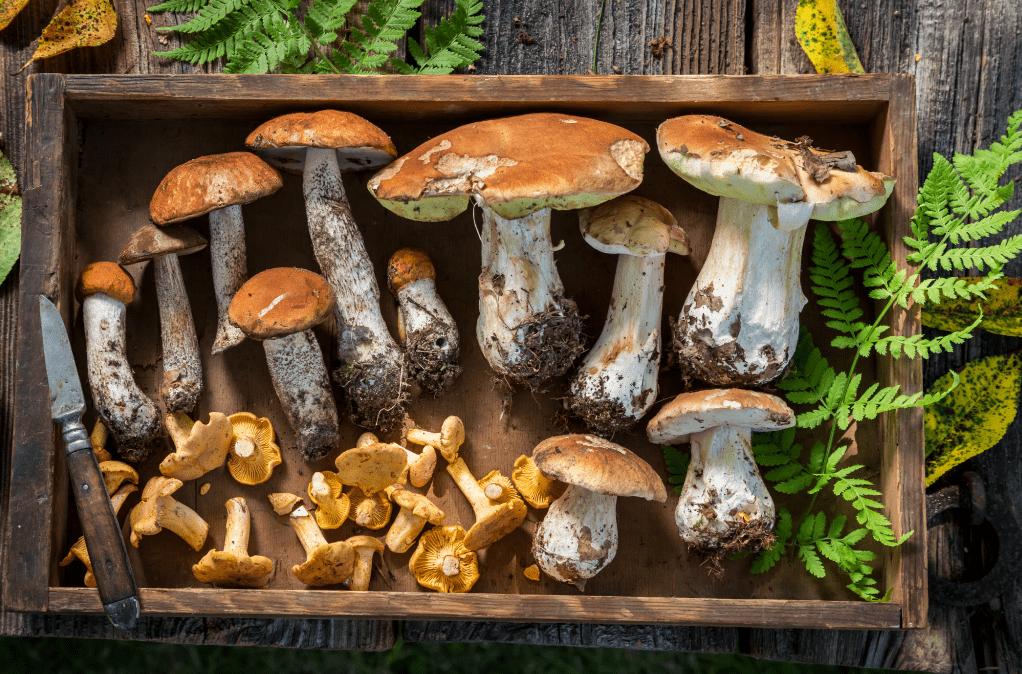Visit any drugstore and you could get lost amid the aisles of creams and serums designed to improve your skin by changing what goes on top of it. But what about what goes underneath? Centuries ago, Hippocrates said, “Let food be thy medicine and medicine be thy food.” Contemporary researchers say that’s never been more true. While it’s not a new concept, “food as medicine” has increasingly become the battle cry of health professionals, as increasing evidence emerges about the critical role of good nutrition in preventing and treating disease and the signs of aging. Here are some of the best foods to nourish your skin. (Health11News)

Love The Skin You’re In With Fatty Fish and Omega-3s
Salmon, herring, mackerel, and sardines, along with bluefin and albacore tuna, are excellent sources of omega-3s, which are polyunsaturated fatty acids that the body cannot make for itself. Two types are plentiful in oily fish: eicosapentaenoic acid (EPA) and docosahexaenoic acid (DHA). These acids help protect the skin against inflammation caused by ultraviolet A (UVA) and ultraviolet B (UVB) rays. They also nourish the skin by hydrating it, promote skin healing, and improve barrier function by sealing in moisture and keeping out irritants.
According to one review, a large percentage of Americans consume fewer omega-3 fatty acids than are necessary for good health. The Dietary Guidelines for Americans recommend roughly two servings of fatty fish per week.
Plant-based sources of omega-3s include walnuts and almonds, ground flaxseed, chia seeds, hemp seeds, and canola oil. Some dermatologists say that consuming these foods to nourish your skin by increasing your intake of omega-3s can produce noticeable improvements in as little as two to three months.

Love The Skin You’re In With Carotenoids
Antioxidants called carotenoids protect the skin from overexposure to the sun and tissue damage caused by “free radicals,” which are oxygen-containing molecules with an uneven number of electrons. The uneven number allows them to easily react with other molecules, injuring cell membranes and DNA through a process called oxidation. Antioxidants are molecules that can donate an electron to a free radical without making themselves unstable, causing the free radical to stabilize and become less reactive. Because carotenoids are powerful antioxidants, they are important foods to nourish your skin.
Carotenoids can be found in bright orange and yellow fruits and vegetables, such as carrots, yams, sweet potatoes, mangoes, and papayas. Bright green vegetables can also be rich sources of carotenoids, such as bell peppers, spinach, spinach, and kale.

Love The Skin You’re In With Citrus and Vitamin C
Vitamin C (also known as L-ascorbic acid) is a water-soluble vitamin. Like carotenoids, Vitamin C is a vital food to nourish your skin because of its properties as a powerful antioxidant. Moreover, Vitamin C plays an important role in synthesizing collagen, a fibrous protein that keeps skin strong and elastic. Most mammals and other animals can synthesize Vitamin C, but humans do not and must obtain it from their diet.
Vitamin C supports the skin’s blood capillaries, making it one of the best foods to nourish your skin. It also reduces the risk of sunburn and age spots and has been associated with a reduced risk of developing wrinkles and dry skin as the body ages. This includes both chronological aging and what is known as “photoaging,” which happens when ultraviolet (UV) light hits skin unprotected by sunscreen, causing DNA changes at a cellular level.
Excellent sources of Vitamin C include citrus fruits such as oranges, grapefruit, lemons, and limes. Other foods to nourish your skin through Vitamin C include strawberries, kiwi fruit, guava and papaya, as well as bell peppers, broccoli, and sweet potatoes.

Love The Skin You’re In With Avocados
Avocados are powerhouses among the foods to nourish your skin. In addition to being rich in essential fats, which support more supple and elastic skin, they are a significant source of Vitamin E, which helps produce collagen. Also, as naturally occurring lipid-soluble antioxidants, they also protect skin from oxidative stress, including photoaging.
In addition, biotin is also found in avocados; many nutritionists say that this B vitamin promotes healthy skin and hair. Indeed, a biotin deficiency can lead to skin problems like dermatitis, rashes, and overall itchiness. Avocados also contain lutein and zeaxanthin, which help to protect the skin from both UV rays and other causes of sun damage.
(In addition to avocados, almonds and sunflower kernels are good foods to nourish the skin, because they are good sources of vitamin E as well.)

Love The Skin You’re In With Soy
Unique among the foods that nourish your skin, soy products contain isoflavones, a group of phytochemicals (natural plant chemicals) found in foods like legumes. Considered “phytoestrogens,” isoflavones are similar in structure to the female hormone, estrogen. Isoflavones are thought to improve skin health because they are similar to estrogen therapy, which is believed to improve skin elasticity, water-holding capacity, pigmentation and vascularity (the supply of blood vessels). Isoflavones are also considered to be antioxidant compounds. One study in the Journal of Nutritional Science and Vitaminology found that women who took a daily 40-mg. dose of soy isoflavones for 12 weeks saw fewer facial lines.
In addition, dermatologists say, soy’s protein increases collagen synthesis, which contributes to the firmness, tone, and texture of the skin, Also, soy’s fiber helps maintain normal blood sugar levels, which has proven to have a positive impact on skin health.
The optimal amount daily is 4 oz. to 5 oz. of high-quality soy protein. Good foods to nourish your skin by including soy include soybeans, tofu, soy milk, edamame, miso, or tempeh.

Love The Skin You’re In With Polyphenols
For some, delicacies that have polyphenols are among the most tempting foods to nourish your skin. These include chocolate, red wine, coffee, and tea. These natural antioxidant compounds give some fruits and vegetables their bright colors.
One research study showed that polyphenols in coffee and green tea could help prevent photoaging and hyperpigmentation. Red grapes and wine contain polyphenols derived from resveratrol, which fights free radicals. Still other polyphenols contain phenolic acids, anthocyanins and flavonoids, which may protect skin from airborne pollutants.
Among the most delicious foods to nourish your skin, dark chocolate that has 60% to 70% cocoa contains flavanol. This is a type of polyphenol that reduces the rough texture in your skin and protects against sun damage.
Love The Skin You’re In With Supplements and Nutraceuticals
While many or most foods to nourish your skin are found in the produce section of your local grocery store, other options for skin care include supplements or nutraceuticals.“Nutraceutical” is a term derived from “nutrition” and “pharmaceutics.” It refers to nutrients used as pharmaceutical alternatives which claim medicinal benefits.
One good example is Yemaya Organic, which offers a select line of products derived from sea moss, a type of red algae that grows on rocks in deep ocean water. Yemaya’s wildcrafted, ethically harvested sea moss, which comes from St. Lucia, is available in its native raw form, and is also available in a gel form which is ideal not only for supplementation as an ingestible, but which can also be applied topically for absorption of its many nutrients.
Yemaya’s sea moss and sea moss formulations are rich in bioactive antioxidants, antimicrobial, and anti-inflammatory compounds that offer some great benefits for skin care, as well as for general health.
Chemical building blocks of healthy skin are often used as supplements. Luma by Laura, a Florida company helmed by Mercedes Potosme, produces a collagen supplement designed to reduce wrinkles caused by aging, sun exposure, and air pollution.
Mushroom derivatives are another popular supplement, but not all products are authentic, cautions Skye Chilton, CEO of Real Mushrooms, located in British Columbia. “Many consumers and even health practitioners are being misled into believing they are consuming mushrooms,” he says, “when in fact the products are nothing more than mycelium cultured grain.” Chilton’s Ergo+ products supplement mushroom extracts with ergothioneine, a natural antioxidant that has been shown to provide protection against UV damage and improve skin quality by reducing the amount of DNA damage.
Can beautiful skin be found in a jar? Useful topical products can be found in the cosmetics aisle, but foods to nourish your skin and selected supplements allow you to lay a foundation for healthy skin that starts from within.

Further Reading:
The role of diet in maintaining healthy skin
Plant-Based Foods for Skin Health: A Narrative Review
Discovering the link between nutrition and skin aging
Disclaimer
Important Note: The information contained in this article is for general informational purposes only, and should not be construed as health or medical advice, nor is it intended to diagnose, prevent, treat, or cure any disease or health condition. Before embarking on any diet, fitness regimen, or program of nutritional supplementation, it is advisable to consult your healthcare professional in order to determine its safety and probable efficacy in terms of your individual state of health.

